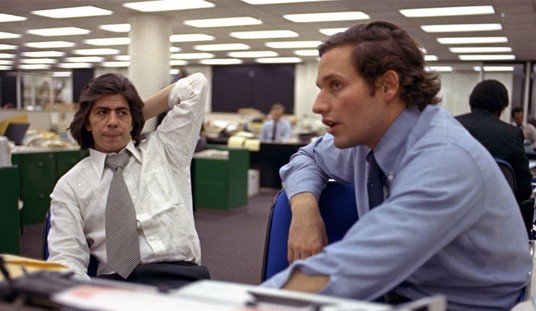WNET is New York’s public television station and since 2007 its CEO has been Neal Shapiro. In 2015, employees at WNET formed the Inclusion and Diversity Council (IDC). This year, after the killing of George Floyd, the IDC became angry with what it saw as the halting and inappropriate response by Shapiro. Employees at WNET wanted the company to issue a statement of support for Black Lives Matter. Six days after Floyd’s death, Shapiro issued a statement which said in part:
Racism is a cancer in the soul of this nation. This has been an agonizing and painful week. Our hearts go out to so many, especially so for our African-American colleagues. At the same time, it is also a reminder of what drew many of us to public media–to help build a more informed country with equal justice for everyone based on understanding and mutual respect.
The IDC didn’t like the statement. In particular, they thought the metaphor of racism as a cancer was offensive. About a week later the IDC sent a letter to Shapiro which offered a list of reasons they were upset with him:
We express our anger and frustration at the way WNET and its leadership has responded to the murder of George Floyd and the subsequent unfolding events…
On Monday, June 1st, you did address this national crisis—simultaneously promoting WNET content—by publishing a statement on WNET.org, describing racism as “a cancer in the soul of this nation.”
We have many objections to the content of the June 1 statement, starting with your characterization of racism as a cancer, which we reject. It is our view that this represents your profound misunderstanding of our nation’s history and its current reality. Racism is not an anomaly separate from us, rather, it is woven into the fabric of this country and, in fact, our own institution.
Let’s pause there for a moment. Why is the Inclusion and Diversity Council so upset with this reference to racism as a cancer? It’s hard to think of anything more intimately woven into something else than cancer which is literally our own cells replicating out of control. In any case about a month after the authors of this letter objected to that metaphor, bestselling anti-racism author Ibram X. Kendi gave an interview to PBS News Hour in which he compared racism to cancer:
When we think about the way in which we go about treating cancer, particularly metastatic cancer, that’s how we can treat metastatic racism, particularly within a society. And so there’s typically a local treatment, in which doctors go in and surgically remove the tumors, in the way we can go in and surgically remove racist policies.
And doctors do a systemic treatment, in which they flood the body with the chemotherapy, which is equivalent to flooding the body with anti-racist policies that have been proven to reduce racial inequity.
I’d love to see the reaction of the IDC members to Ibram Kendi using the same metaphor they objected to their CEO using. Maybe they should issue a statement that Kendi has a “profound misunderstanding” of reality. It sort of suggests their complaint was nonsense from the start.
In any case, that wasn’t the IDC’s only problem with Shapiro. The letter also objected to a video the station had published. The video has since been pulled down but here’s how the NY Times described it:
Another point of contention between the council and WNET management was a 36-second video the company posted on its social media accounts on June 3. Set to a plaintive piano, the video presented images of harmony between New York City police officers and citizens. In one photo, a Black man in a hoodie is seen fist-bumping a white police officer in riot gear; in another, a white police officer marches in a protest next to a Black woman wearing a Black Lives Matter T-shirt; the montage also showed a Black woman embracing a white police officer.
The IDC referred to the video as “positive, promotional imagery of the police.” Clearly we can’t have that.
In mid-June, WNET announced that a black woman named Eugenia Harvey would take on a new role as the chief diversity, equity and inclusion officer. The IDC said it felt Shapiro was using Harvey as a shield.
The last straw came in September when WNET announced it would be restructuring the IDC itself. IDC members responded by publishing an open letter last week demanding that CEO Shapiro resign.
Senior Management on Friday, September 25th, described to the IDC and others in attendance how it would replace the existing IDC—an officially-chartered employee group with nearly 100 active members, representing exactly the diverse, cross-departmental body leadership says they want in a diversity council—with a closed, 12-person “Inclusion, Diversity and Equity Advisory (IDEA) Council,” chosen and overseen by a secret panel chaired by the Chief Diversity, Equity & Inclusion Officer (CDEIO), with opacity as the only apparent governing principle.
This stunning move represents nothing less than a systematic dismantling of the IDC and the delegitimizing of all the hard work its members have undertaken over the past four months (or, for that matter, the past five years).
It sounds as if Shapiro is going to survive the attempt by the woke to oust him. He’s certainly holding up better than James Bennett did at the NY Times. Maybe this means there are still ways to prevent activists from taking control of organizations from within. Or maybe this is just the first round and the activists will find some other way to push Shapiro out before long.







Join the conversation as a VIP Member